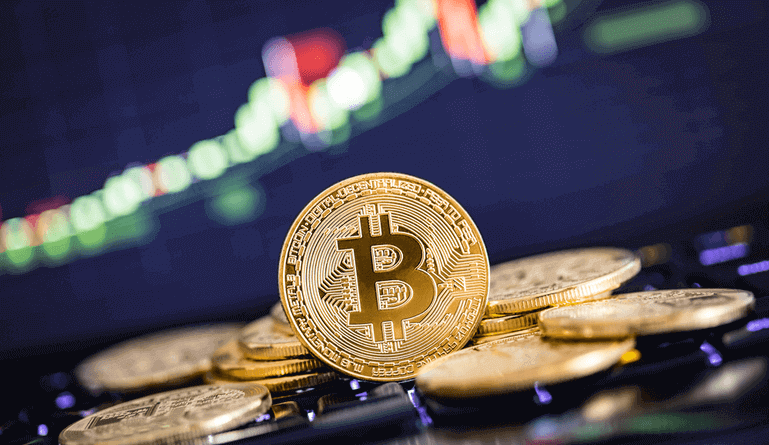Cryptocurrency: Investing or Gambling?

Image for representational purpose. Credit: TechFunnel
The most popular asset class since the onset of the COVID-19 pandemic arguably is the cryptocurrency. Indians have invested billions of dollars into this market over the past year and a half.
So, let’s look at the simplest of the questions. Should we invest money in cryptocurrency?
The short answer: No.
And the reasons? Volatility and Scams.
Today, it’s extremely easy to buy cryptocurrency. There are various crypto exchange platforms, where users can sign up with a few clicks and purchase Bitcoin and other cryptocurrencies like Ethereum, Dogecoin, or the made in India blockchain project Matic. The market term for a listed cryptocurrency is ‘token’. Bitcoin and Ethereum are the most valuable tokens in the crypto market and most platforms have more than 100 such tokens which can be purchased by retail investors, i.e. the general public. During the COVID-19 pandemic, people were looking for new avenues to make money. They started diverting their available funds into the stock market and also crypto exchanges. Unlike stock markets, which are open only for a specific time during the day and closed on weekends, crypto exchanges are open 24/7. As more and more people joined the crypto craze, the value of several tokens started shooting up. Bitcoin was the prime example.
On April 1, 2020, the value of 1 Bitcoin was Rs 5 lakh. From here, it kept steadily rising and one year later, in April 2021, one Bitcoin was worth a little more than Rs 44 lakh. This is a return of more than 800% in a year. And this was an all-time high for Bitcoin. But in May, the price started falling due to a “negative news cycle” for crypto, including speculation about a crackdown on large Bitcoin miners in China. This fuelled a selling frenzy which ultimately crashed the market. By June 1, 2021, the value of one Bitcoin token dropped to Rs 28 lakh. At the time of writing this article, the value of one Bitcoin was a little over Rs 30 lakh. And this volatility is why cryptocurrency is such a risky investment.
People saw a chance to double or triple their money without doing any financial analysis. The strategy employed by many was: just buy crypto, pray for good luck, and wait. Some people even invested their life savings in order to increase their profit margins. But due to the volatility of the crypto market, most people are likely to lose money rather than make money. And Bitcoin is just one example. There are various tokens that cost less than Rs 500 and they can jump in value and crash in just one day. Crypto buyers are forced to sit in front of their phones for hours, just refreshing their screens and watching for any signs of a possible crash in their token value. This is more akin to gambling rather than investing.
Scams
Another reason to avoid cryptocurrency is scams. Every day, we hear about new scams in the cryptocurrency market. This is due to a vast knowledge gap between the retail investors who are buying crypto tokens and the developers who are working on blockchain technology. Most retail investors do not understand how blockchain works. They do not understand how it was built, what kind of transactions take place here, or how to verify if a token they bought is legitimate or completely fraudulent. So, the question to be asked is: why is the value of crypto tokens going up if the investors do not understand how it works? One of the answers is greed. The value of a token is whatever the market pays for it. So, when the price goes up, people buy it hoping to sell it to the next person at a higher price and this goes on and on until the confidence runs out. And that is when the mass selling starts, which crashes the prices. This combination of greed and lack of knowledge is perfect for scammers.
Here are a few scams that are happening in crypto markets.
Pump and Dump Scam
This scam is usually undertaken by the developers of new tokens. The token value is pumped up using social media hype and then dumped overnight, crashing the price in the process, which leaves investors with huge losses. Such tactics are generally possible with ‘altcoins’. Altcoins are extremely cheap coins, usually priced at a fraction of a dollar. For example, Shiba Inu is a popular altcoin and the value of one Shiba Inu coin is Rs 0.000478 today. This token is available for a fraction of a rupee. This makes it very affordable and people can buy it in large amounts because they believe that even if the price goes up to one rupee, they will be millionaires overnight. Dogecoin is the most popular alt coin which saw a huge boost in value this year. Between April and May, the value of one Dogecoin went from Rs 5 to Rs 55. This resulted in windfalls for many investors. The price of altcoins are so low because developers will create billions of coins for sale on the exchange. Currently, there are more than 1 trillion Shiba Inu coins being traded in various exchanges around the world.
Also read: Bezos and Musk: New Space Age or Billionaire Space Grab?
However, many alt coins are scams. A recent pump and dump scam involved a coin called ‘Save the kids’. It was introduced by fraudsters as a charity token which was going to ‘save the kids’. They used gamers and social media influencers to heavily promote it. They also designed a website which included a whitepaper to make it appear like a legitimate project. In reality, the scam token was totally worthless as it was not created to serve any practical purpose. The developers held trillions of this token in their wallets already. After enticing the public to buy the tokens at launch, the developers sold their coins enmasse, in a coordinated manner. The price of the token crashed as a result of this heavy selloff. So, everyone who purchased the token at launch saw their investment lose 70-80% of its value within one week. But the developers had all cashed out. This is why the scam is called ‘pump and dump’ as it involves pumping up the value of a token and dumping it on ordinary investors. Once the news gets out that a token was a scam, nobody will purchase that coin again and the exchange might even de-list the token, meaning that ordinary investors lose their money forever. They can’t initiate legal action either because the developers of the token are completely anonymous.
Exit Scams
An exit scam is a way of cheating the public by introducing a fraudulent crypto project. The way to go about it would be to convince ordinary investors to put money in a project to make it grow, while promising huge returns. Then, the founders simply run away with the money. An example of this is YfDex Finance, which aggressively marketed itself on Twitter and collected $20 million from investors and simply disappeared with the money within two days of launching the project.
Another common way of stealing money in crypto is hacking. Hackers find ways to hack into investors’ digital wallets and simply steal the tokens by transferring them into a different wallet. In many cases, the crypto exchanges themselves were hacked. Altsbit was a trading platform based out of Italy. Hackers managed to steal more than $70 million worth of tokens from the exchanges. This platform had around 15,000 Bitcoins that were being traded between users, and the hackers managed to steal around 7,000 Bitcoins. Most users lost their funds and the platform announced that it would shut down operations since they were unable to recover the losses. Between 2012 and 2019, at least 19 global crypto trading platforms have been hacked and had tokens stolen from their wallets.
Next, we have Thodex. It was a crypto trading platform based in Turkey. This platform had around 3,90,000 active users. The platform attracted users to their exchange by offering free dogecoins, but the users never received any. And when they tried to withdraw their funds, Thodex refused to release the money citing a liquidity problem (liquidity means having cash available). As more and more users started complaining about losing access to their funds, the platform stopped all operations and their founder fled the country. Today, he is a wanted man in his country and upon Turkey’s request, Interpol has issued a red notice for the founder, Faruk Fatih Ozer.
India has had its share of crypto scams as well. Currently, the courts are hearing a case against a company called GainBitcoin which was allegedly a ponzi scheme which defrauded more than 5,000 Indian investors. Many investors were urged to hand over their Bitcoins to this company which promised huge returns. But the returns were never paid to the investors, and neither was their original investment returned. The value of the scam is said to be in excess of Rs 2,000 crore. There are multiple allegations against the people behind this company, who had also launched their own cryptocurrencies which failed to take off leading to further losses to the investors.
Apart from these, there are numerous other scams that have been executed to steal billions of dollars worth of cryptocurrency.
The companies listed on a stock market are regularly audited and are obligated to publish their financial reports every quarter. Investors can be certain that an anonymous promoter is not going to shut down their business and disappear overnight with the company funds. There are a few examples like Mehul Choksi and Nirav Modi who have allegedly defrauded Punjab National Bank and escaped with the money. But there are legal proceedings under way to bring them back to India and to try and recover the losses. When there is regulation, promoters of companies cannot remain anonymous. However, to this day, we do not even know who created Bitcoin. The name of the founder is a pseudonym, Satoshi Nakamoto. The people behind exit scams and platform hacks are all anonymous which poses a huge challenge to the investigative agencies and almost guarantees that investors will not recover stolen funds.
Cryptocurrency trading is meant for people who can afford small or even large financial losses. It’s easier for high net worth individuals to have large crypto investments because they can afford to risk huge losses in order to earn crores of rupees in profits. But common investors take a bigger risk in this volatile market. It is not a good sign if you cannot even verify that the asset you have purchased is legitimate or not. Since there is no regulation, the people who launch trading platforms and cryptocurrencies do not have to adhere to any financial ethics. They are not audited and their projects are not transparent. We have no way of knowing which token is going to disappear next or which blockchain project is going to succeed and change the paradigm of global finance. There may be a pioneer who figures out a way to stabilise these volatile currencies. But today’s pioneers may turn out to be tomorrow’s scammers and investors may find that out the hard way.
Disclaimer:
NewsClick is not an investment adviser. We do not offer investment advice and this commentary must not be considered as such. Investors are advised to do their own research before buying or selling any assets or securities.
Also read: 30 Years of Economic Reforms – A Saga of Growing Inequalities
Get the latest reports & analysis with people's perspective on Protests, movements & deep analytical videos, discussions of the current affairs in your Telegram app. Subscribe to NewsClick's Telegram channel & get Real-Time updates on stories, as they get published on our website.
























